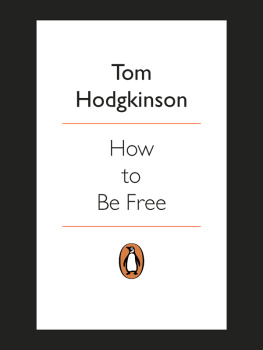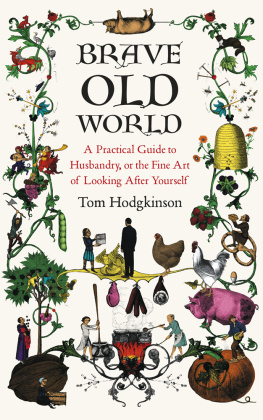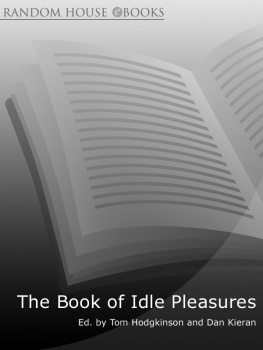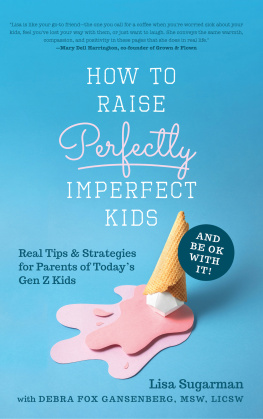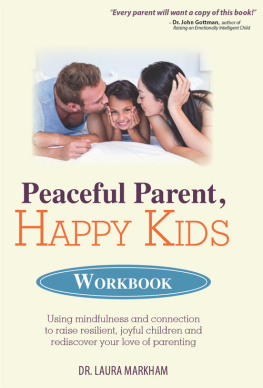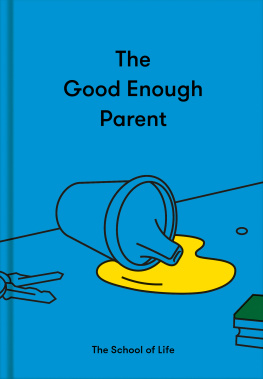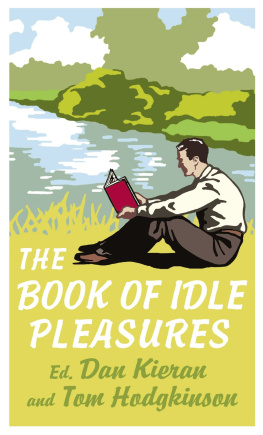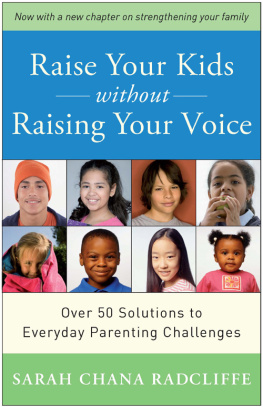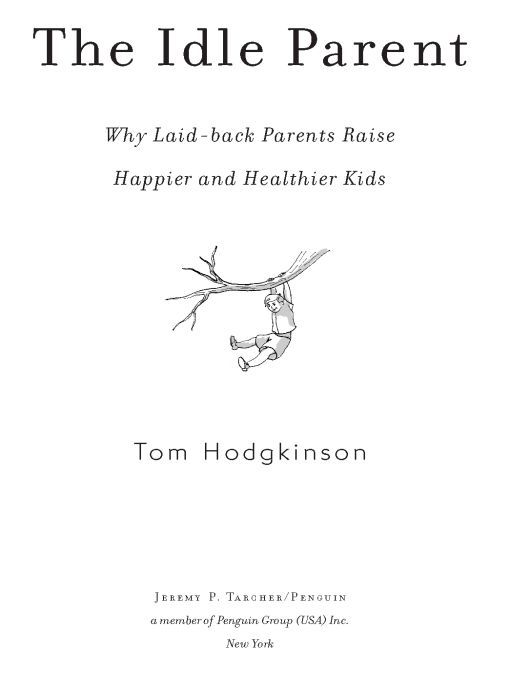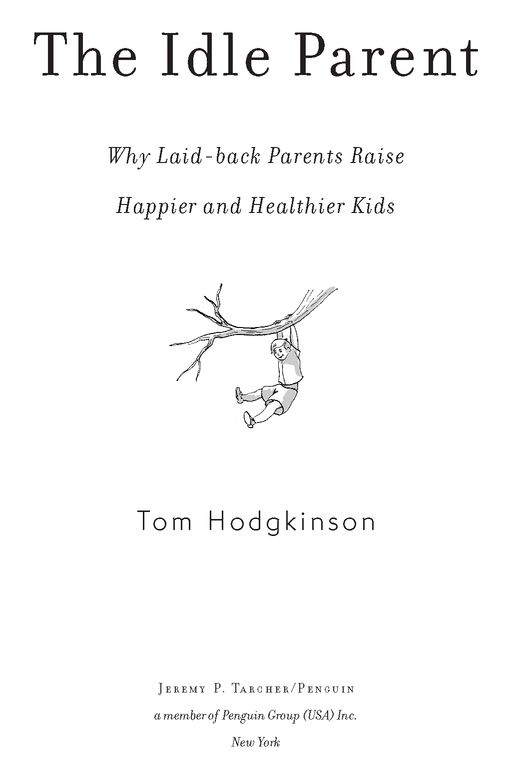Table of Contents
For Arthur, Delilah Rose and Henry
Introduction
How to begin to educate a child. First rule, leave him alone.
Second rule, leave him alone. Third rule, leave him alone.
D. H. LAWRENCE, Education of the People, 1918
An unhealthy dose of the work ethic is threatening to wreck childhood. Under tyrannical work-obsessed governments, years that should be devoted to play and joyful learning are being stifled by targets and tests and long school hours. Kids leisure time is invaded by commercial interests in the form of fun sellers and computer games. Pushy parents dont help by making childhood into a stress-filled period of anxious striving and competing. Our kids days are crammed full with adult-organized activities: ballet, judo, tennis, piano, sports fixtures, art projects. At home kids are entertained by giant screens and computers. In between they are strapped into confining cars and forced to listen to educational tapes. Ambitious mothers force hours of homework on bewildered ten-year-olds, hanging the abstract fear of future employers over their heads. Then they buy them a Nintendo Wii, the absurd and costly gadget that is supposed to bring some element of physicality into computer games. Its only a matter of time before kids with busy schedules will have their own BlackBerrys.
What happened to play? I think of the New Yorker cartoon that showed two kids in the playground, each staring at his personal organizer. One is saying to the other: I can fit you in for unscheduled play next Thursday at four.
All these activities impose a huge burden of cost and time on the already harried parent. They leave no time for simply goofing off, for free play. They have the other unwelcome side effect of making children incapable of looking after themselves. When they are stimulated by outside agencies, whether that be a teacher, computer or television, children lose the ability to create their own games. They forget how to play. I remember when our eldest child, a victim of chronic overstimulation by his anxious parents, screamed: I... need... some... entertainment! in a bored moment. A chilling comment, particularly from a five-year-old. What now? What next? These are the questions our hyper-stimulated kids ask. What has happened to their own imagination, to their own resources?
There is a way out of this overzealous parenting trap. There is a simple solution that will make your life easier and cheaper. It will make your kids lives more enjoyable and also help to produce happy, self-sufficient children who can create their own lives without depending on a mummy substitute. I call it idle parenting, and our mantra is simply: Leave them alone. The very welcome discovery that a lazy parent is a good parent was rooted in me by the following passage from a D. H. Lawrence essay, published in 1918, called Education of the People: How to begin to educate a child. First rule, leave him alone. Second rule, leave him alone. Third rule, leave him alone. That is the whole beginning.
To the busy modern parent, this idea seems counterintuitive. Arent we always being told to do more, not less? All parents wander round with a nagging sense that somehow we are doing it all wrong, and that more work needs to be done. Well, no. The problem is that we are putting too much work into parenting, not too little. By overinterfering, we are not allowing the kids to grow up and learn by themselves. The children who have been too much looked after will not know how to look after themselves. We need to retreat. Let them live. Welcome to the school of inactive parenting. Its a win-win situation: less work for you and better for your children, in terms of their enjoying their everyday lives and also for their self-reliance and independence.
Now, I am not, of course, advocating slobbish neglect. Maybe I went too far with my idle parenting when I dozed off on the sofa in front of the wood-burning stove while doing the child care, as the ugly modern phrase has it, to be woken by the screams of a toddler who had placed his hands squarely on the hot metal and burned his fingertips. Clearly we dont let our children jump out of windows or go about with unchanged diapers. There is carefree and there is careless, and there is a difference.
But to create a household free of care: that would be a wonderful thing. Its been obvious to me watching our three kids grow up that the more they have been ignored, the better. The eldest had a surfeit of anxious parental supervision and is still the trickiest. The second had a little less attention, and she is more self-sufficient. Finally, the third was born on the bathroom floor and has had to get on with his own life.
And he is perhaps the best of all three at playing. Certainly he is the most comical.
The great thing about children is that they like being busy. Since parents like being lazy, it makes sense for the children to do the work. This idea was partly explored in the nineteenth century, when children as young as five were sent into the manufactories. The fact that meddlesome liberals have since introduced child-labor laws need not prevent the idle parent exploiting their own offspring.
I remember my friend John lying in a hammock one sunny afternoon in our garden. He successfully manipulated his four-year-old daughter into bringing him a beer and his cigarettes while he lay there. Yes, its a little-known fact that much can be achieved by lying down. Simply by doing nothing, you can train children to do useful things. During the most recent school holiday, we found we were lying in bed till ten or eleven. My brother has done even better. One morning he and his wife were lying in bed when their eight-year-old son came in. Well done, he said. Its your new record. Its twelve. When kids are abandoned, they teach themselves how to get up, make themselves breakfast and play.
Paradoxically, the idle parent is a responsible parent because at the heart of idle parenting is respect for the child, trust in another human being. It is the irresponsible parent who hands the child over to various authorities for education and care, whether these be child-care providers, schools, after-school clubs, sports teams, the Disney Channel, Nickelodeon or whatever. Or tries to impose their own vision on the children and does not simply let them be.
Now, another great advantage of idle parenting is that it avoids the stimulation of resentment in the parent. There is nothing so corrosive or pestilent as resentment stewing in the breast. Imagine making all those sacrifices, putting yourself out for your children, going withoutand then they turn round and go junkie on you in some kind of Amy Winehouse / Pete Doherty nightmare. No, there is no room for martyrs in the world of the idle parent. Our happiness comes first. And that is the right way round; as a cabdriver said to me the other day of his kids: Theyre happy because were happy. Do not suffer. Enjoy your life.
The idle parent is a stay-at-home parent. Not for us a host of costly leisure pursuits at the weekend. We reject the costly thrills of antiseptic plastic fun palaces, zoos, theme parks and family days out in general. We sit on the sofa and let things happen and find fun in our own backyards. We make airplanes out of cereal boxes. Its amazing how many catching and tickling games you can play with your kids while sitting on the sofa. We have one called Tickle or Trap: the child runs toward me, yells Tickle! or Trap! and I carry out his instruction. Much hilarity.


